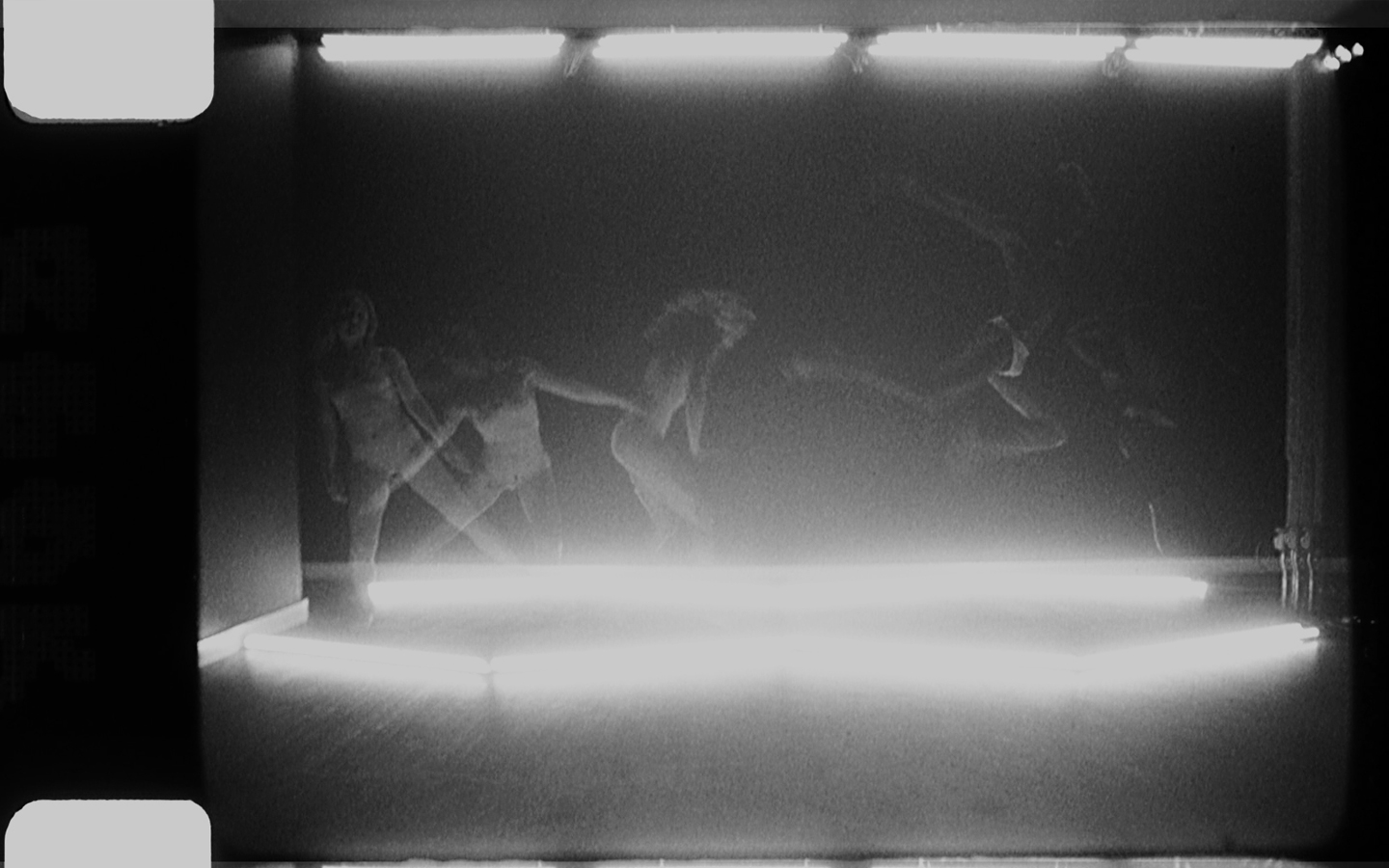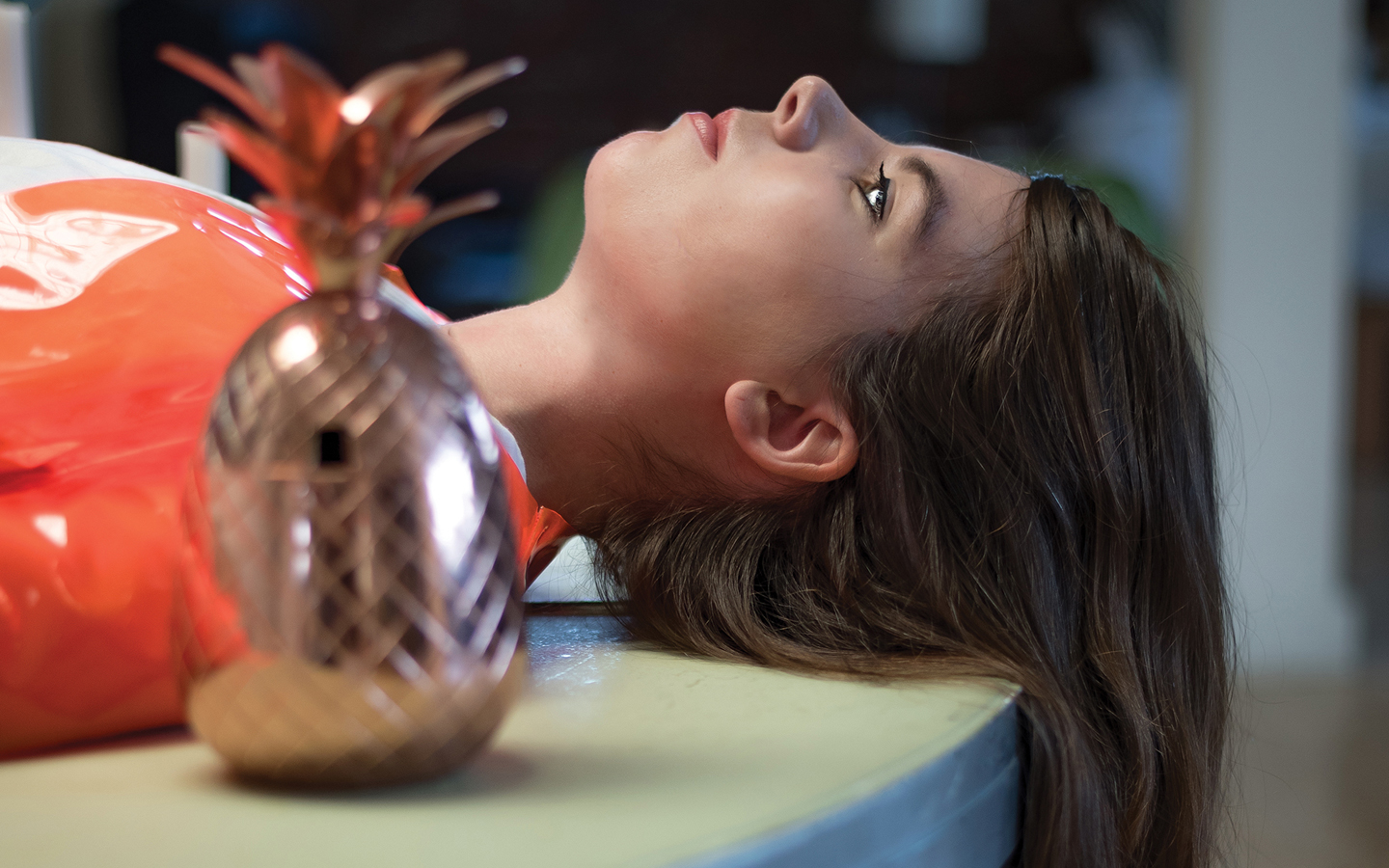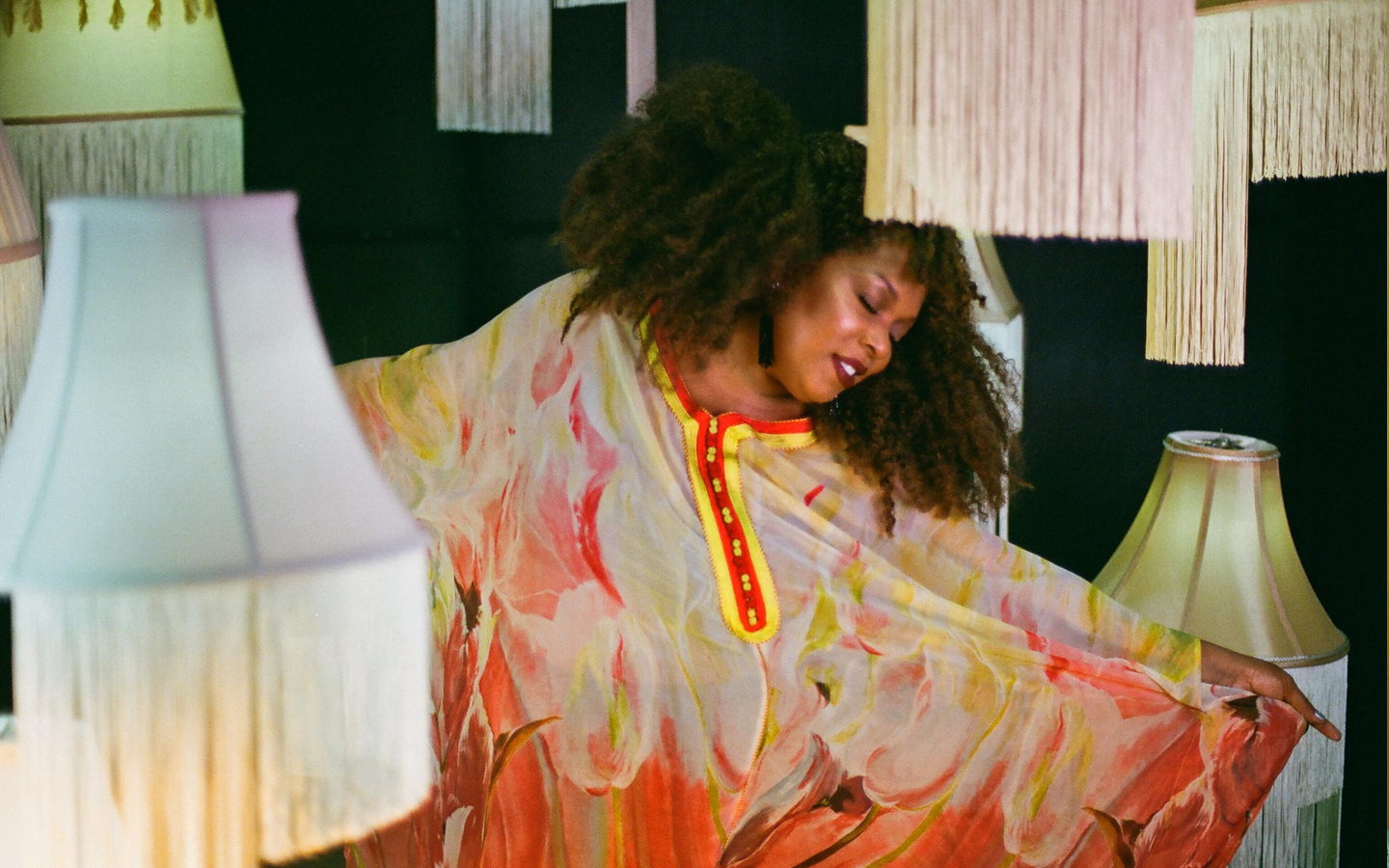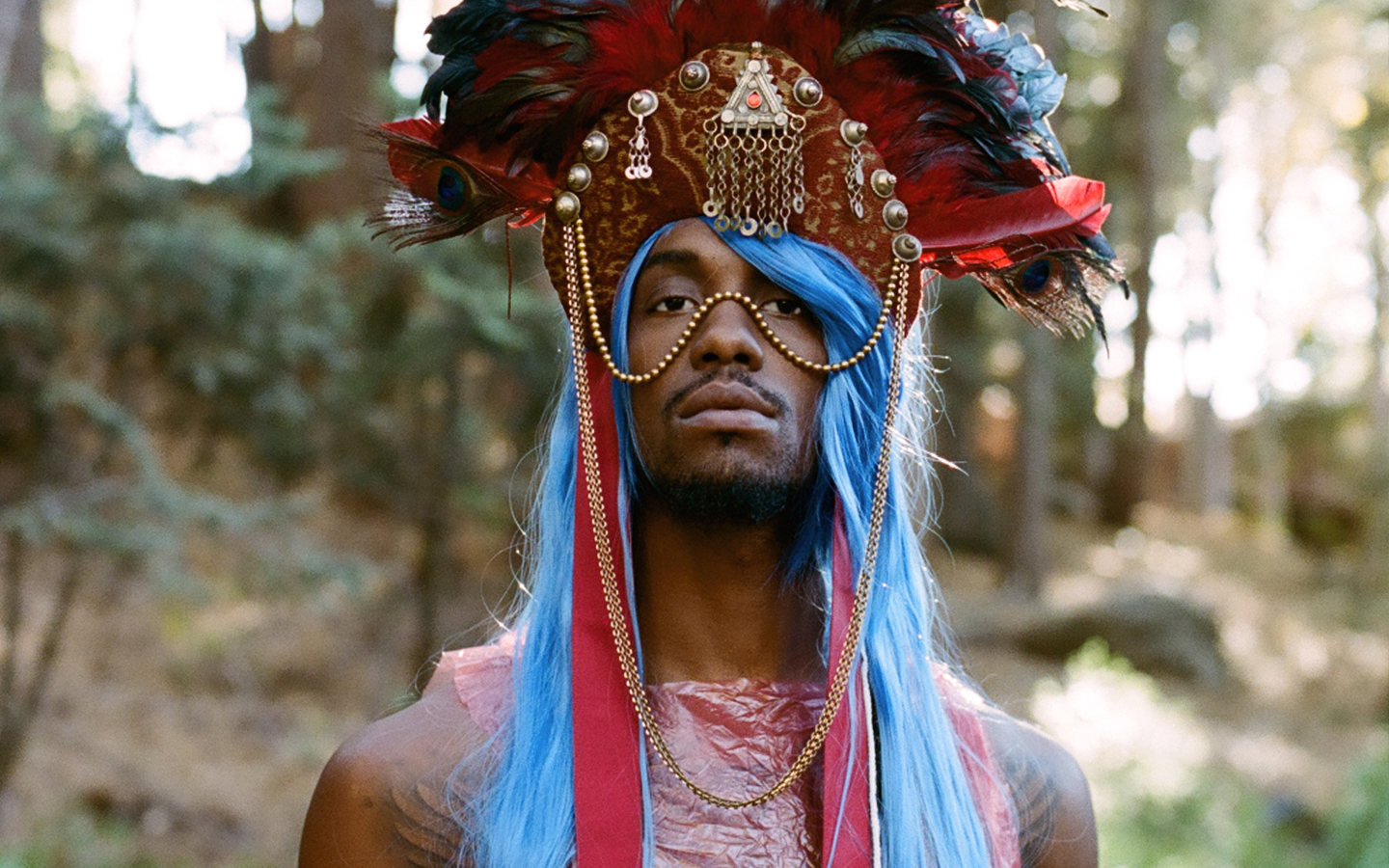
Identity is a Universe, Not a Spectrum
My identity is vapor. It’s around me. I can distinguish something there, and though it may gently direct me, it continuously slips through my fingers. The truths I seek seem to exist behind an infinite, impenetrable veil. I strain my eyes, trying to see beyond and into the obscured, hoping to catch glimpses of clarity.
I think about the spectrums of gender and sexual orientation: useful tools that attempt to show me what can exist (perhaps even to indicate that there are extensions, hills and valleys) in an individual’s identity.
Yet a spectrum leaves me cold; it feels rudimentary, incomplete, too boiled down, with much to be desired and endless questions unanswered. An implication always looms: accepting an identity, or assigning one to yourself, seems to dictate who you are and who you must be. From the deciding moment on, you will bear the weight of this identity, complete with all of its context, expectations, rules, and clubs. Individuality comes second to the institution, and identity can easily function in both subtle and glaring ways as an institution.
Those who are more experienced in exploring their sexuality and gender identities tend to look at the respective spectrums not as maps on which to place oneself, but as guides to understand the many places where one might fall. They see the fluidity, the flexibility, the ability to expand and contract, to combine, subtract, and evolve their identities. They don’t see a final state—they see different ways of existing. They see a universe of options.
The language we have at our disposal is crucial as we develop our empathy and understanding for these subjects; language is also inherently limiting. In our efforts to accurately pinpoint or define sexuality, gender, love, and who we are, we dilute the intangible and complex beauty of our individuality, forcing it into an ingestible commodity. Hungry as we are for our understanding to evolve, we swallow too quickly.
⁂
I let the process of understanding my sexual identity unfold haphazardly, the way my curiosity would lead me to open drawers and jewelry boxes at my grandmother’s house. During these explorations, I’d sometimes find nothing, sometimes find something I didn’t care for, and sometimes find something amazing that I wanted. I can remember finding a certain item and feeling nothing, and then finding it again years later and experiencing an inexplicable connection. Often, I was too nervous to ask if I could keep what I’d discovered; in other moments, I was so overwhelmed by desire that I had to ask. There are instances where one feels unable to live without something once one has found it.
Surveying the aforementioned spectrums and trying to understand where I fit feels like opening a menu when I can’t tell what I’m in the mood for and then realizing I’m unfamiliar with most of the options. I could choose something that I think I’ll like, or something I’m simply accustomed to that feels like a safe choice; I can choose something recommended to me; I can choose something new and risk loving it, hating it, feeling ambivalent, or understanding that it’s not what I want today but could see myself enjoying another time.
Some people know exactly what they want. Others have always known. But I think most of us go through multiple rounds of searching for what we truly need. It’s stressful when you feel unsure of what to choose—to feel limited and pressured to make a decision that feels very final. Maybe I’m indecisive by nature, but speculation only gets you so far. It’s hard to know what you like without experiencing it for yourself, and harder still when you don’t know where to look.
⁂
I came out as bi (“or something, I’m not totally sure”) about a year ago. I suddenly felt that it needed to be established formally, even though the formality felt claustrophobic. What I’m able to articulate about my sexual identity still feels like the tip of the iceberg. To announce anything in an official way fills me with anxiety, as if being placed into some kind of static state of existence.
Similarly with gender, what I know is that I have an intense need to match my external appearance to the way I feel internally on a given day. I haven’t felt compelled to redefine my gender, but that definitely has something to do with certain privileges I have. On the other hand, an adequate definition doesn’t appear to exist.
The closest (current) breakdown of my gender identity, sexual and romantic orientations:
CISGENDER FEMALE: I IDENTIFY AS FEMALE AND WAS BORN ANATOMICALLY AS A FEMALE (I DO HAVE SOME ANDROGYNOUS OR FLUID TENDENCIES, BUT I HONESTLY DON’T KNOW HOW TO CATEGORIZE THAT AT THE MOMENT)
PANSEXUAL/PANROMANTIC: BOTH SEXUAL AND ROMANTIC ATTRACTION TO ANY GENDER
DEMIROMANTIC: ROMANTIC ATTRACTION ONLY (NORMALLY) BEGINS ONCE A STRONG EMOTIONAL BOND IS FORMED
GYNESEXUAL (TENDENCIES): SEXUAL ATTRACTION TO FEMININE FEATURES (ALTHOUGH IT’S REALLY A FEMININE-LEANING ANDROGYNY THAT I’M MOST SEXUALLY ATTRACTED TO. BUT I CAN’T FIND A TERM FOR THAT)
???????: MYSTERY FLAVOR / TBD / A SURPRISE
To be honest, it exhausts me to need a CVS-length receipt of classifications in order to know who I am or what I like. Most of the time, I don’t have a complicated order—I just lack a simple way to describe it. I don’t necessarily know where I fall, only that I could feasibly fall anywhere, at any time, for any person. I never analyzed any of this very much because I’ve always felt that this is what life is: initial reactions and attractions can mean something, or they can mean nothing. Time alone changes things, and time spent with another person changes things. Things. Are. Always. Changing.
Connection is what I really think about more than anything. Navigating intimacy has been more influential in my sex and love life than any of the above orientations. Deep connections can be established with anyone, regardless of how they identify, as long as they’re the right person. This also means that I can fuck things up with anyone. If you’re reading this, you might break my heart one day.
⁂
My gender and sexual orientation have always felt more like existential issues. Partially because I simply don’t feel there are explicit pillars of my identity, and I’ve yet to find groups in which I feel secure/have a sense of security. Maybe that’s why I place so much emphasis on intimacy in my personal relationships, or maybe feeling subtly (or overtly) alienated from the rest of the world is part of being a human, and the best we can do is try to create communities based on clear commonalities.
I understand why many people place such serious emphasis on the ways they identify, how crucial these groups can be, and how valuable the communities they create are. For that, I’m glad they exist—they need to exist. The issue for me is that these commonalities tend to oversimplify the complex; they don’t exist in a vacuum, they exist alongside every other part of me. I lie awake for hours most nights, trying to come up with some understanding of myself and the world we live in. Confirming oneself as part of an established group may help alleviate that disconnect and help anchor us to something tangible. Maybe I’m isolating myself by refusing to fully commit to something; maybe it’s my anxiety disorder and I just overthink all of this because I can’t sleep. But if I’m going to be honest, I don’t think that sexuality or gender are inherently tangible things, and I don’t know that they should be.
Why do these things actually need to matter? The obvious answer is, of course, that we need to be aware of identities outside of our established societal binaries and what is deemed “acceptable.” We can’t break down the existing issues and heal from them until we name them—until we shed light on what has been forced to live in the shadows. These various identities and ways of living that have been invalidated for so long deserve visibility, acceptance, and love. We can’t build a better world without first fixing the existing foundation. So perhaps the better question is, how much longer do they need to matter?
We are in a new era of understanding ourselves and others. Identities are nebulous, and we need to begin thinking of them not as part of a binary, line, or even spectrum, but as their own universes. As much as we may try to contain them, they will continue to expand in ways we may never fully understand. For everyone who is exhausted by the endless explanations and terminology: it might be easiest to simply throw out what you think you know and lean into the chaos.




